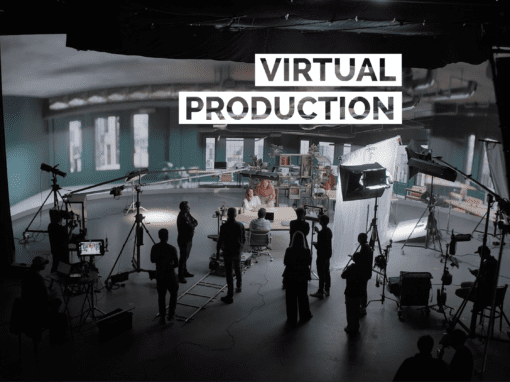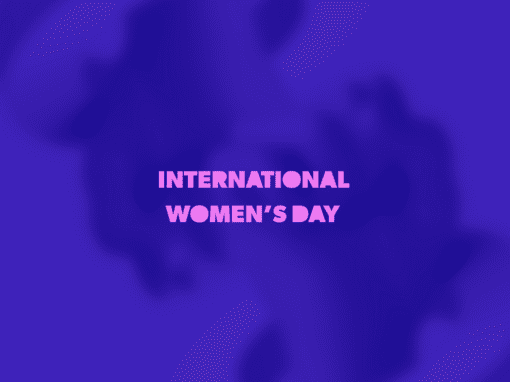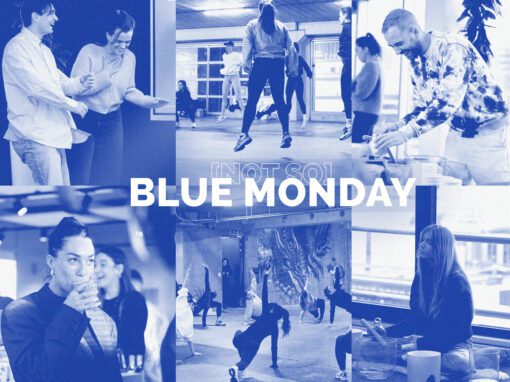An enquiry into whether work is the new religion.
The second Boomerang Talks was all about ‘work’. Work, in many ways, is replacing the role religion and spirituality have traditionally played in our lives. Today, it’s not religion or spirituality that gives us purpose, it’s our work. This paradigm shift has caused us to stress out and burn-out more than ever. During the Talks, we tried to answer the question: ‘Is work the new religion?’ Although the answer can’t be summarized in just a few sentences, this blog will recap the Talks and makes you longing to watch it!

This scripture begins with facts…
The average person will spend 90,000 hours at work over a lifetime. That’s ⅓ of our lives. Next to this, there’s been a steady decline of traditional faith, religion & spirituality over the last century, with The Netherlands ranking as one of the countries with the highest rates of atheism. If we take these two concepts, and lather them together, it makes for a fizzing, foamy affair. What does that mean? It implies that the role of meaning, once reserved for religion, is now suspended in air and finding its way into one of the most demanding parts of our lives: our work. This combination can sometimes lead to that fizz: a burn out. And of course, there is nothing wrong with work, it is necessary, industrious and for many totally fulfilling. But, as poetically inscribed into the stoney face of the Internet by The Atlantic: “a culture that funnels its dreams of self-actualization into salaried jobs is setting itself up for collective anxiety, mass disappointment, and inevitable burnout.”
This concept of the ‘gospel of work’ was explored in this aforementioned article, proposing that “work has mutated into a religious identity—promising transcendence and community, but failing to deliver.” At Boomerang Agency, we decided to dig deeper into the concept, and invited three agents of work and spirituality to discuss this effervescent combination of work, burnout and religion.
An advocate, a monk and a strategic happiness expert
We first spoke with TeLisa Daughtry, an award-winning technology & diversity advocate, who is passionate about creating inclusive (work) environments. After having developed DEI strategies for over 200 enterprises, she is also adamant about cultivating wellness and mindful practices. This is because of her own experiences. She took us through her personal narrative of working herself to the point of being admitted to the ER three times. Articulating the problem of workaholism, she tells us that if “work is our religion, then our labour becomes an act of worship”. And in that observation we can see the problem. TeLisa ends our conversation with some enlightening advice: “Once we move from the space of being in service of our egos or our titles, and we shift to being in service of each other, that’s how we can find meaning in the work that we do.”
(Text continues below!)


“If work is our religion, then our labour becomes an act of worship”
Speaking with Venerable Monk Gendun Losang brought a new dimension to the conversation of work, from the perspective of spirituality. After twenty years of practice in the Theravada tradition, Gendun was ordained as a monk in 2005. He is active in the area of interreligious and intermonasterial communication with an experience of three years in retreat. In our conversation, he takes us through the work he does everyday, Dharma, a key spiritual concept with multiple meanings in Hinduism, Buddhism, and Jainism. His first words not straying far from TeLisa’s advice: ““Dharma is an attempt to understand the world, in that it benefits others”. He starts his day “late, at 5:30 in the morning”, with meditative practice and teaching. He advises that if people want to start with meditation, they should do it to understand more about their own perception. This is because our perception is highly influenced by our surroundings, which includes work. He suggests that we need to consider how we perceive work, where again echoing TeLisa, we need to consider if we are working from the perception of egoism or sourcing satisfaction from outside of ourselves. Wellbeing is an aspect that lives in the mind, so it would seem implausible that looking for that happiness externally or giving significant control of our wellbeing to an employer or work, can create problems for our own wellbeing.
“There is a clear correlation between work stress and the current COVID-19 crisis”
Finally, we spoke with Robin van der Meulen, who is the ‘Strategic Happiness Expert’ at 2DAYSMOOD; in which she motivates companies to be accountable for a positive working climate. Robin started her discussion with the current pandemic, and that in her observations there is a clear correlation between work stress and the crisis, measured through mood indicators like tiredness and sadness. However, she also acknowledges that the pandemic is demonstrating the value of a workplace, and its place in wellbeing, from things like contact with colleagues, and work-arranged facilities. Next to this, she notices new shifts in how the workplace addresses wellbeing—with team leaders not only enquiring into how people are feeling in their work, but also in other aspects of their lives, and she recommends that this becomes the norm.
Is work the new religion?
Having investigated whether work is the new religion, what is our answer? Through these discussions, we can admit there is a space of meaning that religion perhaps once filled, but that our work should not be the replacement. From building more robust meaning around helping others in our work; to maintaining a balanced lifestyle; as well as not looking to external sources for happiness we can see that work is not the centre of our purpose or happiness. It can, in the most ideal sense, only ever be an addition to our lives.

![BRBR_LogoCropped_Black[1]OMG-ai](https://boomerangagency.com/wp-content/uploads/2023/01/BRBR_LogoCropped_Black1OMG-ai.png)
![BRBR_LogoCropped_Black[1]OMG-ai (3)](https://boomerangagency.com/wp-content/uploads/2023/01/BRBR_LogoCropped_Black1OMG-ai-3.png)


